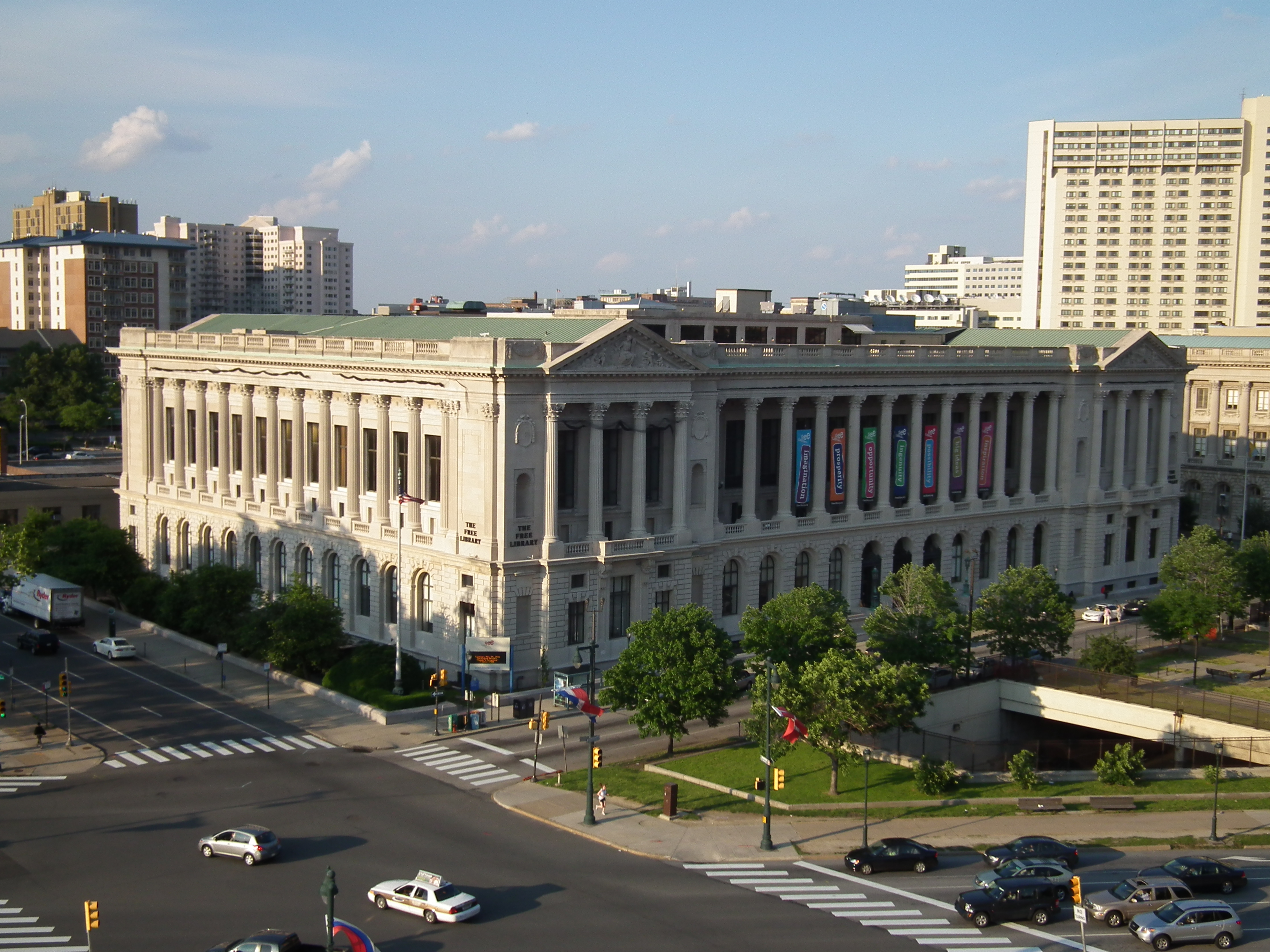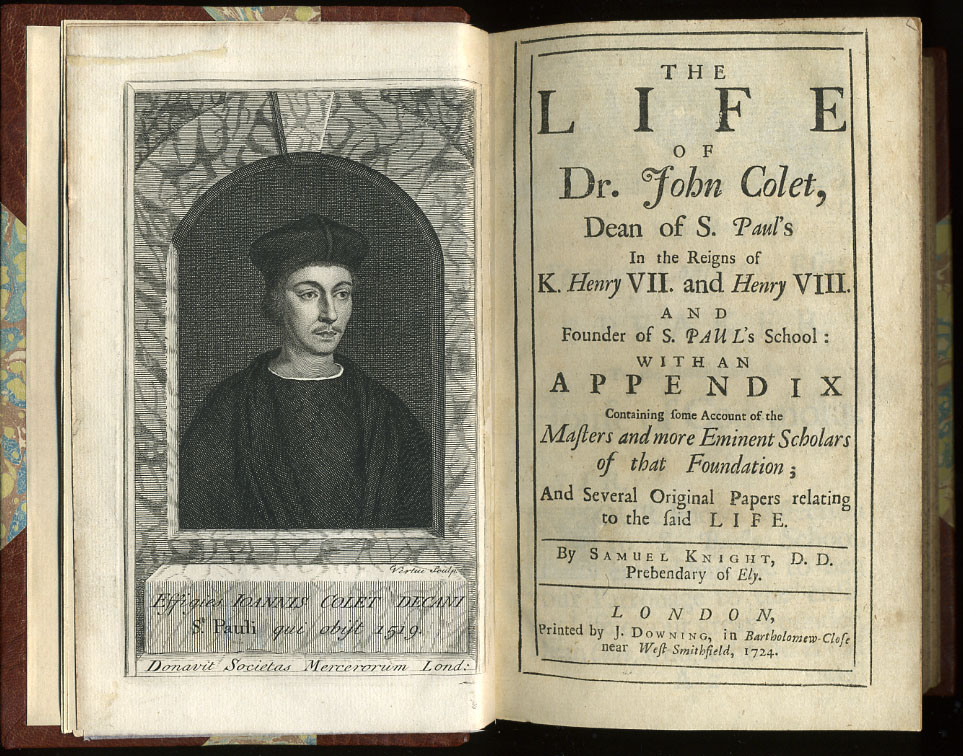|
John Thomson (librarian)
John Thomson (1835–1916) was the first head librarian of the Free Library of Philadelphia. Thomson was born in Norfolk, England and attended St. Paul's School, London. He emigrated to the US in 1881. Before the Free Library of Philadelphia, Thomson was the private librarian of Jay Gould and Clarence H. Clark. When the library opened in March 1894, Thomson's mission statement was "Free Books for All". He compiled a bibliography of all the incunabula in the US and purchased a number of rare books for the library, including Walter Arthur Copinger's collection of 500 incunabula and fourteen Portuguese antiphonaries An antiphonary or antiphonal is one of the liturgical books intended for use (i.e. in the liturgical choir), and originally characterized, as its name implies, by the assignment to it principally of the antiphons used in various parts of the L ... given to the College of Saint Jerome by King John III. He was married to Mary Ann Thomson (1834–1923 ... [...More Info...] [...Related Items...] OR: [Wikipedia] [Google] [Baidu] |
Free Library Of Philadelphia
The Free Library of Philadelphia is the public library system that serves Philadelphia. It is the 13th-largest public library system in the United States. The Free Library of Philadelphia is a non-Mayoral agency of the City of Philadelphia governed by an independent Board of Trustees as per the Charter of the City of Philadelphia. The Free Library of Philadelphia Foundation is a separate 501c3 non-profit with its own board of directors and serves to support the mission of the Free Library of Philadelphia through philanthropic dollars. History Founding The Free Library of Philadelphia was chartered in 1891 as "a general library which shall be free to all", through efforts led by Dr. William Pepper, who secured initial funding through a $225,000 bequest from his wealthy uncle, George S. Pepper. However, several libraries claimed the bequest, and only after the courts decided the money was intended to found a new public library did the Free Library finally open in March 1894. ... [...More Info...] [...Related Items...] OR: [Wikipedia] [Google] [Baidu] |
Norfolk
Norfolk () is a ceremonial and non-metropolitan county in East Anglia in England. It borders Lincolnshire to the north-west, Cambridgeshire to the west and south-west, and Suffolk to the south. Its northern and eastern boundaries are the North Sea, with The Wash to the north-west. The county town is the city of Norwich. With an area of and a population of 859,400, Norfolk is a largely rural county with a population density of 401 per square mile (155 per km2). Of the county's population, 40% live in four major built up areas: Norwich (213,000), Great Yarmouth (63,000), King's Lynn (46,000) and Thetford (25,000). The Broads is a network of rivers and lakes in the east of the county, extending south into Suffolk. The area is protected by the Broads Authority and has similar status to a national park. History The area that was to become Norfolk was settled in pre-Roman times, (there were Palaeolithic settlers as early as 950,000 years ago) with camps along the highe ... [...More Info...] [...Related Items...] OR: [Wikipedia] [Google] [Baidu] |
St Paul's School, London
(''By Faith and By Learning'') , established = , closed = , type = Independent school Public school , religion = Church of England , president = , head_label = High Master , head = Sally Anne Huang , r_head_label = Surmaster , r_head = Fran Clough , chair_label = Chairman of the Governors , chair = Johnny Robertson , founder = John Colet , specialist = , address = Lonsdale Road , city = Barnes , county = London , country = United Kingdom , postcode = SW13 9JT , local_authority = , urn = 102942 , ofsted = , staff = c. 110 , enrolment = c.950 , gender = Boys ... [...More Info...] [...Related Items...] OR: [Wikipedia] [Google] [Baidu] |
Jay Gould
Jason Gould (; May 27, 1836 – December 2, 1892) was an American railroad magnate and financial speculator who is generally identified as one of the robber barons of the Gilded Age. His sharp and often unscrupulous business practices made him one of the wealthiest men of the late nineteenth century. Gould was an unpopular figure during his life and remains controversial. Early life and education Gould was born in Roxbury, New York, to Mary More (1798–1841) and John Burr Gould (1792–1866). His maternal grandfather Alexander T. More was a businessman, and his great-grandfather John More was a Scottish immigrant who founded the town of Moresville, New York. Gould studied at the Hobart Academy in Hobart, New York, paying his way by bookkeeping. As a young boy, he decided that he wanted nothing to do with farming, his father's occupation, so his father dropped him off at a nearby school with fifty cents and a sack of clothes. Early career Gould's school principal was credit ... [...More Info...] [...Related Items...] OR: [Wikipedia] [Google] [Baidu] |
Clarence H
Clarence may refer to: Places Australia * Clarence County, New South Wales, a Cadastral division * Clarence, New South Wales, a place near Lithgow * Clarence River (New South Wales) * Clarence Strait (Northern Territory) * City of Clarence, a local government body and municipality in Tasmania * Clarence, Western Australia, an early settlement * Electoral district of Clarence, an electoral district in the New South Wales Legislative Assembly Canada * Clarence, Ontario, a hamlet in the city of Clarence-Rockland * Clarence Township, Ontario * Clarence, Nova Scotia * Clarence Islands, Nunavut, Canada New Zealand * Clarence, New Zealand, a small town in Marlborough * Waiau Toa / Clarence River United States * Clarence Strait, Alaska * Clarence, Illinois, an unincorporated community * Clarence, Iowa, a city * Clarence Township, Barton County, Kansas * Clarence, Louisiana, a village * Clarence Township, Michigan * Clarence, Missouri, a city * Clarence, New York, a town ** Clarence (CDP ... [...More Info...] [...Related Items...] OR: [Wikipedia] [Google] [Baidu] |
Incunable
In the history of printing, an incunable or incunabulum (plural incunables or incunabula, respectively), is a book, pamphlet, or broadside that was printed in the earliest stages of printing in Europe, up to the year 1500. Incunabula were produced before the printing press became widespread on the continent and are distinct from manuscripts, which are documents written by hand. Some authorities include block books from the same time period as incunabula, whereas others limit the term to works printed using movable type. there are about 30,000 distinct incunable editions known. The probable number of surviving individual copies is much higher, estimated at around 125,000 in Germany alone. Through statistical analysis, it is estimated that the number of lost editions is at least 20,000. Around 550,000 copies of around 27,500 different works have been preserved worldwide. Terminology Incunable is the anglicised form of ''incunabulum'', reconstructed singular of Latin ''i ... [...More Info...] [...Related Items...] OR: [Wikipedia] [Google] [Baidu] |
Walter Arthur Copinger
Walter Arthur Copinger (14 April 1847 – 13 March 1910) was an English professor of law, antiquary and bibliographer. Early life and education Copinger was born on 14 April 1847 at Clapham, the second son of Charles Louis George Emanuel Copinger and his wife Mary, widow of George James, and daughter of Thomas Pearson of Shepperton, Surrey. Educated at the private school of John Andrews at Wellesley House, Brighton, he passed to University College, Durham, but left Durham without completing his course to enter the office of a relative who was a solicitor in London. He did not remain there long. In 1866 he was admitted a student of the Middle Temple, and after spending a short time in the chambers of T. Bourdillon, a well-known conveyancing counsel, he was called to the bar on 26 January 1869. He had mastered the principal treatises of law, and especially the law of real property. Career In 1870 Copinger settled in Manchester, and commenced practice as an equity draughtsman and ... [...More Info...] [...Related Items...] OR: [Wikipedia] [Google] [Baidu] |
Antiphonary
An antiphonary or antiphonal is one of the liturgical books intended for use (i.e. in the liturgical choir), and originally characterized, as its name implies, by the assignment to it principally of the antiphons used in various parts of the Latin liturgical rites. Medieval antiphonaries varied with regional liturgical tradition. In 1570, following the Council of Trent, the Roman Rite antiphonary was declared universal. The Roman Antiphonary (''Antiphonale Romanum'') contains the chants for the canonical hours for the hours of Lauds, Prime, Terce, Sext, None, Vespers and Compline for every day of the year. The ''Vesperale Romanum'' is an excerpt of the Antiphonary containing the chants sung at Vespers. The music for use at the Mass is contained in the Roman Gradual (''Graduale Romanum''), the chants of the ordinary are also edited as an excerpt from the Gradual, the ''Kyriale Romanum''. The ''Antiphonale Romanum'' was substantially revised in 1910–11 in the course of th ... [...More Info...] [...Related Items...] OR: [Wikipedia] [Google] [Baidu] |
College Of Saint Jerome
A college (Latin: ''collegium'') is an educational institution or a University system, constituent part of one. A college may be a academic degree, degree-awarding Tertiary education, tertiary educational institution, a part of a collegiate university, collegiate or federal university, an institution offering vocational education, or a secondary school. In most of the world, a college may be a high school or secondary school, a college of further education, a training institution that awards trade qualifications, a higher-education provider that does not have university status (often without its own degree-awarding powers), or a constituent part of a university. In the United States, a college may offer undergraduate education, undergraduate programs – either as an independent institution or as the undergraduate program of a university – or it may be a residential college of a university or a Community colleges in the United States, community college, referring ... [...More Info...] [...Related Items...] OR: [Wikipedia] [Google] [Baidu] |





